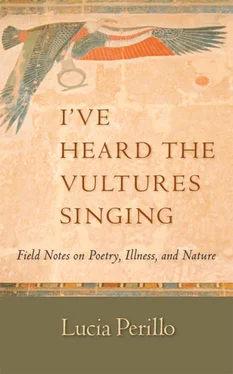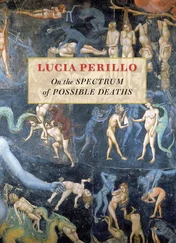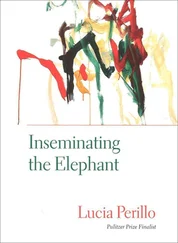Early on, I’d decided that it was a bad idea to call attention to the transgressions of the men, because then they might decide to hurt you. In my French gibberish I announced they’d missed their turn, and they believed me because they were unfamiliar with this part of the province. They let me out in a muddy strip between the speeding cars and the concrete barricade.
When I graduated, I went to live briefly on a farm in Vermont that was run by women, where one of my housemates made her living by crocheting vests and taking them to craft fairs around the country. Lucy did not own a car; few of the women on the farm had enough money or would have wanted a machine that was such an ecological scourge. So she sent her vests by mail and hitchhiked after them. When I asked about whether she was afraid of being raped, she answered that she had been, recently, and then of course I wanted to know why she still hitched.
“What I can’t bear to give up is the feeling,” she said. “Just me and my thumb all alone on the road.” I said I knew what she was talking about. The immense spaces inside of which the hitcher becomes tiny. And the sudden diminishment is thrilling: whoosh . Small becomes big, and there you are, standing alone with Heraclitus again. Even rape didn’t quash him.
But of course I didn’t have a clue.
These stories came to an end when I bought a truck. By then the sentiment of the highway was changing anyway, so that no one of legitimate sanity picked up hitchers anymore. For a while I felt obligated to make the reciprocal gesture as payback for all the rides I’d been given, until more than one drifter scared me when I realized he had nowhere to go and wanted to attach himself to me. Then I had to scramble for an excuse to kick him out. I usually said, you have to get out here, I’m turning back .
Some of the ones I blew by still haunt me, like the Indian woman on crutches way out in the desert in New Mexico. She’s wearing a bandana and she’s crying. I think about turning around for her sometimes, but now it’s twenty years too late.
And some of the ones I picked up still haunt me too, like the man-boy in Colorado who was traveling to an uncle who had promised him a job. He did not know exactly where he was headed, and so I tossed him the Rand-McNally road atlas. He flipped and flipped, from one cover to the other, until I realized that he couldn’t alphabetize, could not read the word Colorado where it was printed in the corner of the page. He had the name of the town where he was supposed to be headed written on a scrap of paper, but could not pronounce the words. “Booey veh. . ” he muttered before finally handing me the scrap, on which I decoded Buena Vista spelled badly in the strange glyphs of someone who didn’t know the alphabet.
Now, in the new millennium, we drive and make phone calls at the same time, and the car operates in sympathy with the clock. This is no country for backpacked young women: You don’t know what kind of river you’re stepping into, I may never be the same, but that doesn’t mean that I am good .
I trade stories often enough with women my age, about our lives as hitchers, to know it is not an uncommon history, though hitch isn’t a word we use anymore except in regard to knots. We’ve experienced middle-aged reentry, and we hunker now inside the nose cone that has returned safely (maybe), unraped (no — the other woman often has her rape story to tell, if she will tell it), as we bob in the sea. Heraclitus had nothing good to say about the state of being wet. Better to be a dry thing, he thought, ready to be kindled into flames.
But some stories can’t help being soggy, as on one dusk-time in New Hampshire, when I find myself in my man-boy costume. Lugging skis and a pack, I have just come from Tuckerman’s Ravine, a bowl whose walls are famously steep, and I am feeling like an epic hero for having skied down them alone. This time, instead of mysteriously ending up half-clothed, I’ve just as mysteriously ended up on the road with too large a load. My thumb brings no luck as the sky turns black and sends down starlight only in the form of giant flakes.
Finally, a semi stops — its headlights bore a tunnel through the swirling globs of wet snow while I climb into its cab. The driver reacts with surprise when he realizes I am a girl, and for a while I try to talk to him in French, though in no time I fall asleep. It is a mystery to me, how we crossed the border — and I wake up slumped against him. My drool is cold and wets his sleeve.
Bonnie Without Clyde: The Romance of Being Bad
The movie Bonnie and Clyde opens with Faye Dunaway wearing not a stitch — she’s just a daybreak cloud in false eyelashes. When she looks through the bars of her iron headboard, we know this shot means to show us that she feels like she’s in prison there in her mama’s house. And also that her body is part of the prison problem, that she wants to make some kind of storm with its rosy cloud. The lightning will come from her tommy gun and the rain will be her blood. So the movie’s violent final splatter tells us nothing we don’t already know two minutes in.
The appeal of the clodhopper who is Warren Beatty’s Clyde is that he intuits all this about her when he shows up out of nowhere to steal her mama’s car. Good thing he’s impotent, that instead of his penis he puts a gun into her hands, which suits her better anyhow, since she can be photographed with the gun as though it were her own lethal erection. And though the critic Pauline Kael was a fan of the movie, she faulted its cheesy climax, when Clyde is cured. What finally makes him hard (and though it may be cheesy, I do love this about the story) is Bonnie’s writing a poem about him and then getting it published. To him, a published poem means bona fide ( boner-fied! ) immortality.
Kael points out that the movie’s concoction of Bonnie is confused in the way it collapses time: the story takes place in the 1930s, but her makeup and hairdo put her in the 1960s, when the movie was made. If I think about an outlaw woman poet of the 1960s, the person who pops first into my head is Sylvia Plath, calling her daddy a bastard. This is a curious reversal: the child accusing the father of being illegitimate. It’s a blasphemy that seems as ancient as it is screwball.
I remember vividly when my sister called my father a bastard. It only happened once, which gave the word special power to burn a permanent neural pathway in my brain. We-the-family were on our yearly Hajj to a whitewashed motel in Virginia called the Whispering Pines, a crumbling ruin, though the fame of its restaurant traveled miles. There, surreally dark-skinned waitresses served the soft-shelled crabs my father loved. Bonnie Parker happened to be what Pauline Kael calls a “waitress-slut,” but the waitresses at the Whispering Pines were mythic, as formal as a Greek chorus, in starched white uniforms that sparked against their skin. In particular, I remember a woman in thick glasses who bussed the tables and wore a nametag that read I AM DEAF .
I should also mention that my father, whose frothing volatility masked his basic mildness, responded by slapping my sister’s cheek. When I talk about this memory — the shy girl spitting out the curse and the ensuing crack-sound of the slap — my sister has no recollection of it. But I do, I swear, and because I’m the one writing this I get to control this version of the past, and I say that the bone of their contention was our daily outing in the Cadillac. On this day we were bound for the ferry to Tangier Island, a trip that my sister refused to take and so was hauled by force into the car .
Читать дальше











![Various - Birds and Nature, Vol. 12 No. 5 [December 1902]](/books/745517/various-birds-and-nature-vol-12-no-5-december-thumb.webp)
![Various - Birds and Nature Vol. 11 No. 2 [February 1902]](/books/745533/various-birds-and-nature-vol-11-no-2-february-1-thumb.webp)